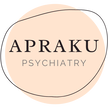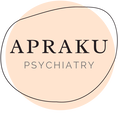Shape Divider - Style fan_opacity
Frequently Asked Questions
Prospective patients often contact us to ask various questions about our practice. To save you time, we've collated our answers to those frequently asked questions here. We've grouped them in three categories: finance-related, services-related and questions about psychiatrists compared with other mental health providers. Of course, if you don't see your question listed, or if you need some clarification, you should always feel free to get in touch.
Credit: Matt Manley
Finance-Related Questions
Do you take insurance?
Like many private psychiatry practices, we are not in-network with insurance carriers. However, if you would like to use insurance benefits, there are still two options.
First, we can provide a "superbill" on request. This document allows patients to claim from their insurer any out-of-network benefits to which they may be entitled. Typically, preferred provider organization (PPO) plans give such benefits. To check how much you could expect to be reimbursed, contact your carrier and quote the following CPT service code pairs: both 99204 & 90838 for the initial psychiatric evaluation, and both 99214 & 90833 for follow-up appointments.
Second, in certain cases, we may be able to bill your insurance carrier directly. To verify whether this may be possible, please contact us before scheduling your first appointment with the following details: your full name, date of birth, address, insurance name and member ID number.
First, we can provide a "superbill" on request. This document allows patients to claim from their insurer any out-of-network benefits to which they may be entitled. Typically, preferred provider organization (PPO) plans give such benefits. To check how much you could expect to be reimbursed, contact your carrier and quote the following CPT service code pairs: both 99204 & 90838 for the initial psychiatric evaluation, and both 99214 & 90833 for follow-up appointments.
Second, in certain cases, we may be able to bill your insurance carrier directly. To verify whether this may be possible, please contact us before scheduling your first appointment with the following details: your full name, date of birth, address, insurance name and member ID number.
Do you offer free consultations?
Unfortunately, due to the volume of patients, the practice is unable to offer free consultations. The only route to become a new patient is to schedule an appointment for an initial psychiatric evaluation. However, you are welcome to first get in touch by email to ask questions before booking.
When will my card be charged?
New patients are requested to provide valid payment details when scheduling their initial evaluation. These payment details are vaulted securely by our payments processor. Your card will be charged after each appointment according to the prevailing fees schedule. In addition, in advance of each appointment, your card may be pre-authorized to ensure that your payment details are valid. This pre-authorization is not a charge, but instead reserves an amount on your card that can be charged after the appointment.
Services-Related Questions
Why tele-psychiatry?
Patients can seek care at a time and place that's convenient to them (as long as it's in the right state). Forget about a stressful, time-consuming trip and the potential awkwardness of a psychiatrist's waiting room. Just grab your mobile or laptop to connect with your doctor.
Moreover, unlike most other medical specialties, psychiatrists typically don't need to perform physical evaluations. So psychiatry is uniquely placed to take advantage of modern technology. To read more about tele-psychiatry, check out this blog post.
Moreover, unlike most other medical specialties, psychiatrists typically don't need to perform physical evaluations. So psychiatry is uniquely placed to take advantage of modern technology. To read more about tele-psychiatry, check out this blog post.
What concerns do you treat?
The practice treats a wide range of psychiatric concerns facing adults. Common issues include depression, anxiety, bipolar disorder, obsessive compulsive disorder and post-traumatic stress disorder. We also give guidance for mental health concerns related to life transitions, attention difficulties, mood swings, anger and problematic eating.
Do you treat attention disorders (e.g. ADHD)?
Yes, but with two caveats. First, a definitive diagnosis of attention disorders such as ADHD may require an in-depth neuropsychological evaluation, which we do not provide, but if necessary we are able to refer you to someone who does. Second, first-line treatment of ADHD often includes medications that are controlled substances, which we do not prescribe. Nevertheless, certain non-controlled medications can be indicated for ADHD treatment, and if you are open to these treatments we would be glad to see you for an evaluation.
What are the treatment options?
Treatment options will be discussed in detail during your appointment. Depending on your situation, treatment may include prescribed medication. Complementary treatment may include lifestyle advice and targeted therapy, either with your doctor or a psychologist specialized in providing a specific kind of therapy known to be effective for your condition. In addition, patient education is an integral part of the healing process. Knowledge about what ails you is often the first step to overcoming it. Your doctor will therefore take the time to educate you about the science underlying your condition.
Do you prescribe medications?
Yes, medications will be prescribed by your doctor where clinically indicated. There is one exception to this: the practice does not prescribe controlled substances, which includes stimulants (e.g. Adderall and Ritalin), benzodiazepenes (e.g. Xanax and Klonopin), and some sleep medications (e.g. Ambien and Lunesta). Nevertheless, if a controlled substance is medically indicated, your doctor will say so and may be able to suggest alternative options to have it prescribed (e.g. by working with your primary care provider).
Do you do therapy?
The primary services offered at Apraku Psychiatry are diagnosis (figuring what's wrong), psycho-education (teaching you the science underlying your condition) and medication management (identifying which medications might be appropriate, if any, and prescribing accordingly). In addition, your psychiatrist may also provide targeted therapy. For some patients, however, your psychiatrist may advise that you complement treatment with regular, high-frequency meetings with a dedicated therapist, such as a psychologist. If this happens, the practice can support you by providing referrals to trusted psychologists who specialize in providing the therapy you need.
Questions About Psychiatrists
What is a psychiatrist?
Psychiatrists are specialized medical doctors who have completed a four-year specialty training program ("residency") in addition to earning a medical degree. For more information on what it takes to become a psychiatrist, click here.
What is the difference between psychiatrists and psychiatric nurses?
At Apraku Psychiatry, all providers are psychiatrists. Psychiatrists are medical doctors with advanced training - becoming a psychiatrist requires at least 12 years in higher education. By contrast, registered nurses hold an associate's or bachelor's degree in nursing, which can take around two years to complete. Some nurses pursue additional training to earn a master's degree in nursing, allowing them to practice as psychiatric nurse practitioners, typically under the supervision of a psychiatrist.
What is the difference between psychiatrists and psychologists?
Psychiatrists and psychologists provide complementary mental health services. While psychiatrists are medical doctors who typically focus on biological modifications through medication management, sometimes in combination with therapy, clinical psychologists hold a different type of doctorate that exclusively provides training in behavioral modifications through therapy, and may specialize in providing a specific therapeutic modality effective in treating certain conditions.


